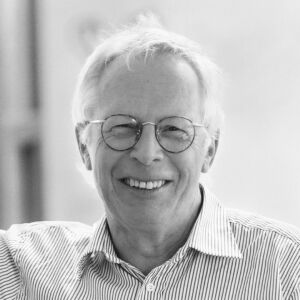Egon Becker was a co-founder of ISOE and worked on transdisciplinary methods and concepts, among other things. He specialized in the methodology of social ecology, complexity research and philosophy of science. Egon Becker studied communications engineering, mathematics, physics, philosophy and sociology at the Technical University of Darmstadt and the University of Frankfurt am Main, where he completed his doctorate in theoretical solid state physics. He pursued his research activities in the field of theoretical physics at Yale University and Goethe University, Frankfurt am Main. In Frankfurt, Egon Becker held a position as Professor of Science and University Research from 1972 until his retirement in 2000. Between 1984 and 1993, he was simultaneously working as a visiting professor in Kassel, Rio de Janeiro and Mexico. His theoretical and methodological work was groundbreaking for the successful development of ISOE. Egon Becker passed away on November 15, 2024.
Focus of research
- Methodological issues in social ecology
- Complexity theory
- Philosophy of science
